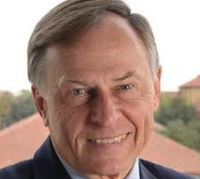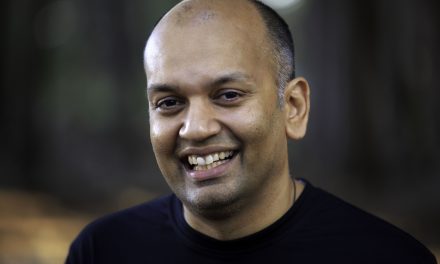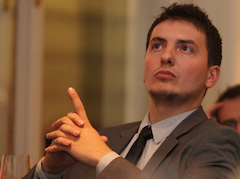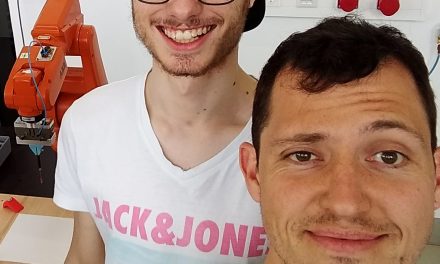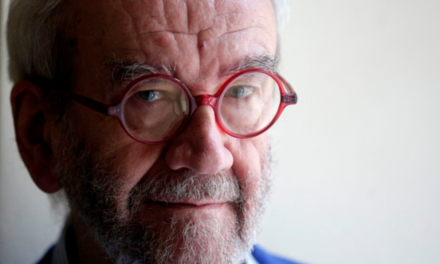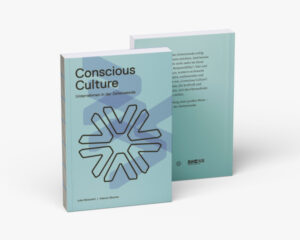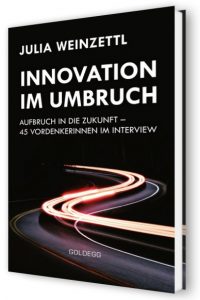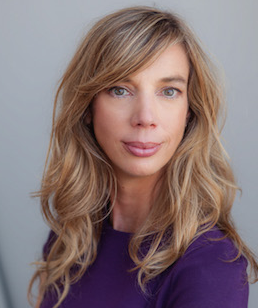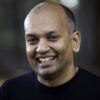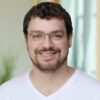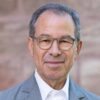Ph.D.Jim Plummer, Dean School of Engineering, Stanford
TF: How is working/teaching at universities going to change within the next 10 years?
There may be significant changes how we will be educating young people over the next decade. Part of this is driven by technology if we think about MOOCS (Massive Open Online Courses) and online education. Whereas opinions vary to both extremes, I think that the very best universities in the future will make use of elements of online teaching in conjunction with residential education. Thus providing an education that is much better for our students than we could do with either one by itself. For most young people, especially in the US, going away to university is often the first time they have been away from home. This is also the time where they learn an enormous amount about life, people and relationships above many other things.This learning process happens at university and goes way beyond classroom teaching. It´s hard to imagine that online education can replace those elements. That´s why I think a combination of online education and residential education is probably the best solution. But I think there will be another decade of experiments, there will be blended learning and flipped classrooms to name only two new ways of teaching. Most of the learnings we’ve had in online education have been so far in some sense unmeasured experiments. We really need to understand the outcomes from both traditional classroom teaching to newer technologies like online education. What´s important in the end is how much the students learn and how much they understand. If we experiment, we should measure the outcomes and try to assess the efficiency and effectiveness of the teaching methodologies for all of these technologies. I see the next 10 years as a very exciting period. A variety of methods are now available but we don’t know how they work or how well they work – we are going to learn a lot over the next decade.
TF: Do you think with the new ways of education the target group of universities will broaden as it’s possible now to gain extra occupational knowledge online?
One of the things I’m fond of telling our students at Stanford is that, especially if they want to proceed a career in the technical field, they better sign up to be lifelong learners. The technology is changing so rapidly and it´s impossible to predict what it will look like 5 years or 10 years from now. Online learning is going to play a huge role, because it’s neither convenient nor possible for practising engineers after they graduated, have families and move to a different place to come back to bricks and mortar universities.Then online learning makes tremendous sense. As undergraduates they’ve learned the basics as well as took advantage of the social component of university life. The probably most immediate impact of online learning is to be of use in ongoing or professional education.
TF: What are the biggest opportunities of our time?
29th century engineering disciplines were all based on physics, mathematics and chemistry as the underlying sciences. They were the foundations of most fields of engineering and most systems that engineers designed. Biology was not one of those. If you were an engineering student 20 years ago, biology was irrelevant to becoming an engineer. But that’s all changing. The fact that biology is now becoming a quantity of science makes it part of the toolkit that engineers can use because it´s much more predictable and reproducible. You can think about designing, creating, synthesising systems that involve biological sciences in addition to maths, physics, chemistry. I think the biggest and most important findings that are going to come out of engineering within the next 50 years are going to be in the life sciences. Whereas in the 20th century the most important research results came out of the physical sciences. Bioengineering and fields like that, where engineers can partner with not just biologists but people who work on understanding how life works, the function of cells, diagnosing and treating diseases. There are enormous opportunities to have impact in that field. It´s always been deep diving scientists who win the nobel prizes and who discover the new scientific principles, but they are usually not the people who turn those discoveries into useful applications for people. Engineers are the people who do that. Now that we are seeing the deep diving science coming out of biology, it´s time and the opportunity is huge for engineers to take those discoveries and turn them into applications that are really useful for people.
TF: What are our biggest challenges?
There are always challenges but I like to turn challenges into opportunities. There are challenges on how we think about reinventing education. Our education is way too expensive. We need to find ways to educate more effectively and cheaply so that every young person has access to high quality education. We also face the environmental issues, the energy issues, the human health challenges. But working on solutions are also opportunities and I think for young people these are very exciting topics to think about in terms of careers.
TF: What new professions will evolve within the upcoming years?
In my profession I am asked this question very often by students: how they should plan their careers. What I usually tell them is – because technology is developing so quickly these days – you should expect a career where you won’t be doing the same thing from year to year and you probably won’t be working for the same company from year to year. Especially if you are the kind of person who is a self learner and does take learning during your career as a necessity. You will find opportunities along the way that will move you in many directions which are impossibly to predict. The best thing young people can do is to be driven by their passion. I think that in the future there will be less people that can be put into boxes. People are going to find job opportunities that are across many disciplines. We will be focussed on solving problems and to do that we can’t find a solution individually within a narrowly defined discipline. We have to work in teams and so we will become much more multidisciplinary. I think careers are going to be very dynamic, changing a lot and in many ways be unpredictable in the future because I don’t see the raid of change in technology slowing down at all.
TF: What is your vision?
If we could educate every young person so that they walk out of our universities as an interested, interesting, curious, thoughtful person, who really is unafraid to take on the challenges and the big opportunities that they are going to see during their career – then we have accomplished our mission. David Kelly (founder of d school) says that it´s mission is to make sure that all students who take classes and compete in competitions will walk out there and believe that they are creative, innovative people. He believes that all of us are born with that as part of our character and we lose it in many cases because of the way the education system works in many countries. If we can change that so that young people grow up feeling empowered, self confident and enthusiastic about taking on problems – then they really will change the world. So that´s my vision: to graduate a whole bunch of people to feel that they can change the world and have a skillset to be able to do that.
http://engineering.stanford.edu
http://dschool.stanford.edu/

